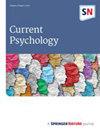文化在学校中属于什么位置?探讨个人主义和权力距离在跨文化学校归属感中的作用
IF 2.6
3区 心理学
Q2 PSYCHOLOGY, MULTIDISCIPLINARY
引用次数: 0
摘要
文化与学校归属感之间的关系很少从学生和学校层面的因素来研究。这项研究探讨了文化(通过个人主义和权力距离来衡量)是否在各国的学校归属感中发挥了作用。这项研究旨在将校内教师支持的影响与国家层面的影响分开,研究对象是来自53个国家的413575名学生。对2018年PISA调查数据和Hofstede的文化维度的初步分析表明,个人主义和教师支持呈负相关,而权力距离与教师支持呈正相关。然而,尽管更高的教师支持与更高水平的归属感有关,但两种文化措施都与归属感有负相关。进一步分析表明,教师支持与学校归属感呈正相关,而在国家一级,教师支持较高的国家,学生报告的归属感水平较低。权力距离与归属感的整体负向关系可归因于国家层面教师支持的负向间接影响。此外,结果显示,学生对学校合作的感知、欺凌经历和破坏性纪律气氛的感知都是学校归属感的重要预测因素。研究结果还表明,国家层面的个人主义和权力距离对学校归属感也有显著影响。这些发现强调需要采取多方面的干预措施来改善学校归属感。这包括加强对教师的支持,营造合作的学校环境,减少欺凌行为,倡导充分考虑具体情况影响的公平教育政策。这项研究阐明了学校归属感、教师支持和文化因素之间复杂的相互作用,强调了区分学校内部和国家层面影响的重要性。本文章由计算机程序翻译,如有差异,请以英文原文为准。
Where does culture belong at school? Exploring the role of individualism and power distance in school belonging across cultures
Abstract The relationship between culture and school belonging has rarely been examined relative to student and school-level factors. This study explored whether culture, measured through individualism and power distance, plays a role in school belonging across countries. The study, designed to separate the effects of within-school teacher support from country-level effects, was conducted on a cross-cultural sample of 413,575 students drawn from 53 countries. Initial analysis of the 2018 PISA survey data and Hofstede's cultural dimensions suggested that individualism and teacher support were negatively associated, whereas power distance was positively associated with teacher support. However, although higher teacher support was linked with higher levels of belonging, both culture measures had a negative total association with belonging. Further analysis indicated that teacher support was positively associated with belonging within schools, while at a country level, students reported lower levels of belonging in countries with higher teacher support. The overall negative relationship between power distance and belonging could be attributed to the negative indirect effect of country-level teacher support. Moreover, results showed that students' perception of cooperation at school, experiences of bullying, and perceptions of a disruptive disciplinary climate were all significant predictors of school belonging. Findings also indicated that individualism and power distance at the country level also had significant effects on school belonging. These findings underscore the need for multifaceted interventions to improve school belonging. This includes enhancing teacher support, fostering a cooperative school environment, mitigating bullying, and advocating for equitable education policies with full consideration of context-specific implications. This study illuminates the complex interplay between school belonging, teacher support, and cultural factors, emphasising the importance of distinguishing between within-school and country-level effects.
求助全文
通过发布文献求助,成功后即可免费获取论文全文。
去求助
来源期刊

Current Psychology
PSYCHOLOGY, MULTIDISCIPLINARY-
CiteScore
4.60
自引率
10.70%
发文量
1412
期刊介绍:
Current Psychology is an international forum for rapid dissemination of peer-reviewed research at the cutting edge of psychology. It welcomes significant and rigorous empirical and theoretical contributions from all the major areas of psychology, including but not limited to: cognitive psychology and cognition, social, clinical, health, developmental, methodological, and personality psychology, neuropsychology, psychometrics, human factors, and educational psychology.
 求助内容:
求助内容: 应助结果提醒方式:
应助结果提醒方式:


